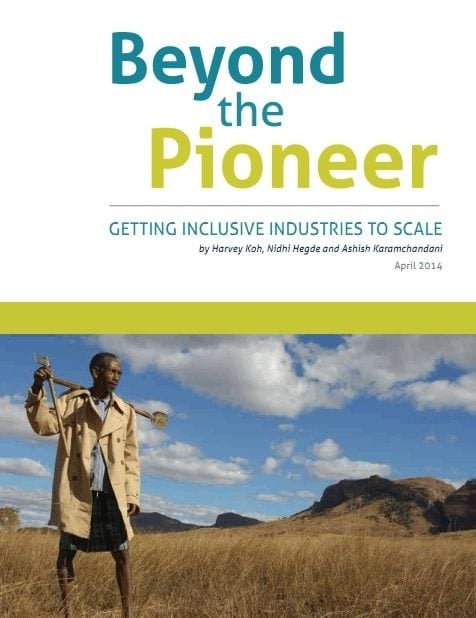Many are giving poor households access to beneficial goods and services, by bringing safe drinking water to slums, powering villages in deep rural areas, delivering high-quality but low-cost surgical procedures, or boosting educational attainment at affordable prices. Others are enhancing the livelihoods of the poor by raising the earnings of smallholder farmers or giving more consistent and better-paid work to rural artisans. Meanwhile, impact investors, foundations, aid donors, and increasingly, governments are banking on these businesses to grow and flourish, and generate both financial returns and social impact on a large scale. While it is exciting that innovations like these are emerging, most of these solutions are still operating at low levels of scale: our 2011 analysis of 439 such firms in Africa showed that only 13% of them had begun to scale significantly. We believe that scale is important because the problems of global poverty are vast: billions of people around the world live in poverty and suffer its consequences. Wherever market-based solutions have an impact and are commercially viable, we want to see them scale up so that they can make a significant difference to more of these people. In this report, we take a close look at the challenge of scaling. Why aren’t more market-based solution models scaling? What barriers do they face? Where market-based solutions have achieved scale, how has this been achieved?
By addressing these questions, we hope to help:
• Philanthropic foundations, aid donor agencies and multilateral development institutions, to create a greater impact on the problems of global poverty, by directing and modulating their resources most effectively to accelerate market-based solutions to scale; • Nonprofits and other mission-driven intermediaries working locally with market-based solutions, to enhance their effectiveness and understand them within a wider global context; • Impact investors, to enhance the way they select and manage investments to deliver desired financial returns and social impact; • Governments, to understand how their laws, policies and actions can influence the development of market-based solutions, for better or for worse; and • Companies, both large and small, to improve their chances of success at scaling innovative solutions to benefit the lives of the poor.
BEYOND THE PIONEER – GETTING INCLUSIVE INDUSTRIES TO SCALE
Download at the link below : https://moneymint.com/wp-content/uploads/2020/07/Beyond-the-Pioneer-Report-2014.pdf

